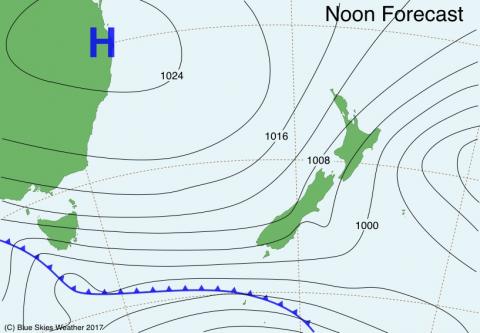-
More
Weather Forecast
- What's On
- Programmes
- Noticeboard
- Tuning
- Services
- DVD Shop
- About
- Home
- Business
Tuesday 03rd May, 2016
A positive snapshot of government finances has just been released by Statistics New Zealand.
Data shows the government's net operating balance increased in the last financial year to a $2.5b surplus.
Rising individual income tax boosted total revenue, which was up 5.6%.
But expenses were also up, by 2.8%, due to higher superannuation payments.
As at the end of June last year the government's net worth totalled $80.6b.
Thursday 28th April, 2016
The Reserve Bank has kept the Official Cash Rate unchanged at 2.25%.
That's come as no surprise for many business commentators and will be pleasing to mortgage holders.
Following this morning's announcement the New Zealand dollar jumped 1.3% against the greenback.
The Reserve Bank says some easing may be needed to get inflation back to its target.
Governor Graeme Wheeler is expected to cut the official cash rate to 2% in June.
Wednesday 27th April, 2016
The country's annual trade balance has reached a significant low, with a March deficit of $3.8b.
That's the largest yearly trade shortfall since April 2009.
It's a result of falling values for primary produce exports like milk powder, beef and lamb.
In the last quarter the seasonally adjusted value of exported goods dropped $145m.
Meat was down by a whopping 17%, while dairy products fell 6.4%.
Wednesday 20th April, 2016
The Dunedin City Council is saving almost $2m a year in interest, having renegotiated bonds.
Its treasury company received strong interest in the two bonds, collectively worth $95m.
They are for periods of five and ten years.
The council says the refinancing, coupled with a maturing floating rate note and hedging, means an interest saving of about $1.9m a year.
Dunedin City Treasury manages debt for the council and its companies.
Tuesday 19th April, 2016
There's been a downturn in the rural property market, with 42 fewer farm sales in the first three months of this year compared to the same time last year.
That's a 10% reduction across the country.
The median price per hectare has also fallen by about $700, to just over $27,000.
In Otago property agents are noticing more neighbour to neighbour sales and splitting of farms.
They say that's happening throughout the country to achieve sales.
But commentators say well-established Otago farmers seem to have a solid footing in the current economic climate.
Friday 15th April, 2016
The country is more reliant on wireless internet than ever before, with total broadband connections reaching 1.23m.
Kiwis are continuing to move away from fixed-line services on the copper network to fibre, which is up 21%.
Chorus says it's now completing an average of 480 fibre connections per weekday.
Fixed-line connections are slowly shrinking and now sit at about 1.74m.
The government has extended its target for the fibre telecommunications network to 80% of the country.
It's estimated that will cost about $1.8b to build.
Wednesday 13th April, 2016
Three technology start-up companies with strong links to Dunedin have each attracted almost half a million dollars in government loans.
Each is getting $450,000 in repayable loans, through the government agency Callaghan Innovation.
The companies with local ties are Mastaplex, Upstream Medical Technologies and Fishery Logistics.
They're among 11 technology start-ups granted loans in the latest round of support through Callaghan Innovation.
It's for companies to commercialise new intellectual property and get products to market.
Tuesday 12th April, 2016
Almost 300 houses were sold in the city last month, further boosting the property market.
That equates to an increase of 33% compared to last March.
The average price for local homes being sold sits around $305,000.
It was slightly higher in February but values are up 9% on a year ago.
Sales are also rising in other parts of Otago, where the median settling price has jumped about $20,000.
Friday 08th April, 2016
Dunedin house values are up by 8% compared to a year ago.
The latest quotable value data has just been released, showing the city's housing stock has jumped in worth by 2% in the last three months alone.
South Dunedin is leading the way, with the largest increase in the average property's worth to just under $300,000.
On a whole the city's average home is valued at about $315,000.
That's a 10% rise since the 2007 market peak.
Thursday 07th April, 2016
Thumb not available yet
The Dunedin City Council has lost some money selling its shares in mining, energy and petroleum companies.
Councillors made an ethical move to divest last year, and subsequently sold shares in four large international firms.
The council received almost $1.2m for the equities.
But that was about $380,000 less than their combined worth.
However if the council had retained those investments, their falling value would have resulted in a loss of about $150,000.

